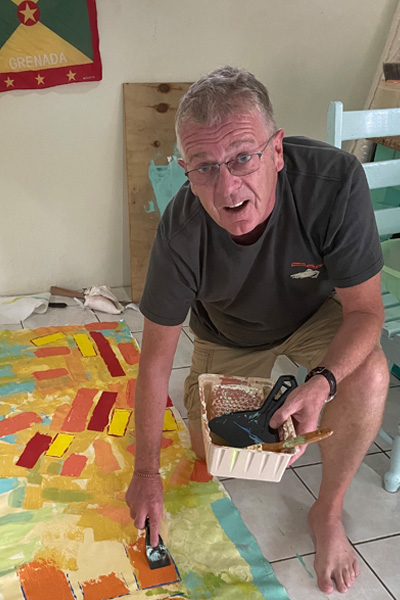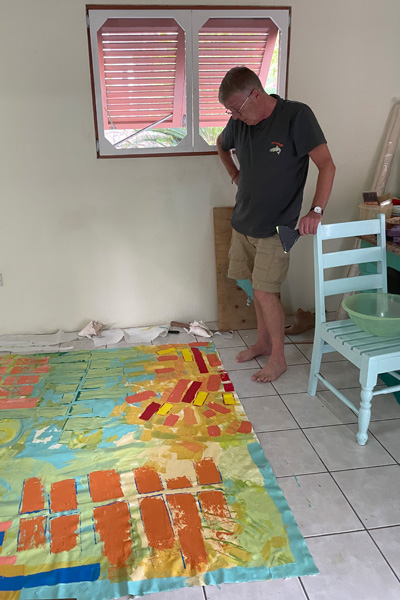Glen Welford – Abstract Action

After 20 years growing a business, in 2008 I sold the detergents manufacturing company that I and others had successfully built up. This allowed me time to study art, develop my creativity and concentrate on becoming an artist.
In my fifties I embarked on an Art Foundation course, loved it , and I haven’t stopped exploring and painting since.
I have studied art at number of UK institutions, including Central St Martins, Chelsea Art College, Northumbria University and The Essential School of Painting. I have also taken classes while overseas in Melbourne, Australia and at The Point St Charles Art School in Montreal, Canada. This varied programme has given me the chance to learn from many inspirational practitioners, tutors and fellow students. It has resulted in an adventurous capacity to explore abstract art.
My main areas of interest are texture, colour manipulation and the investigation of traditional and modern materials, techniques and applications. I particularly enjoy the energy and disruption of work by Richard Serra. Other influential artists are Kandinsky, Rothko, Frank Auerbach and Jackson Pollock. My travels in more than 50 countries have given me a wealth of experiences with live music, skiing, ocean sailing, cycling , hiking and an appreciation of nature and its beauty.
My method often uses energetic ‘ action’ mark-making to create semi-abstract and contemporary paintings. I use a variety of implements and paint media in multiple layers, scraping back with expressive moves. It is a challenge to work in a carefree, relaxed and playful manner. I try to give free rein to my imagination and intuition, aiming to express myself and create pieces I hope are visually interesting.
I work from a light-filled, paint-splattered art studio in Newcastle over looking the Tyne valley. I resist over- intellectualising my ‘Abstract Action’ process.
“Sometimes I may give a clue in the title of the piece but I avoid using too many words about what goes on in my head. I prefer to let the viewer enjoy making an interpretation which is unique and personal to them”

